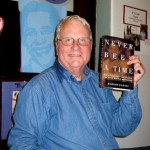Consider this description of a significant and tragic event in American history:
[Occurring in May and July 1917, this event] was an outbreak of labor and racially motivated violence against blacks that caused an estimated 100 deaths and extensive property damage in [an American industrial city]. It was the worst incident of labor-related violence in 20th century American history, and one of the worst race riots in U.S. history. It gained national attention. The local Chamber of Commerce called for the resignation of the Police Chief. At the end of the month, ten thousand people marched in silent protest in New York City over the riots, which contributed to the radicalization of many.
[paraphrased from Wikipedia]
Do you know anything about the event described above? The above passage describes the East St. Louis race riot that occurred on Monday, July 2, 1917. I learned about this riot for the first time tonight when I had the opportunity to hear a talk by Harper Barnes, a St. Louis journalist who has recently written a book called
Never Been a Time: The 1917 Race Riot That Sparked the Civil Rights Movement.
[caption id="attachment_5419" align="alignright" width="150" caption="Harper Barnes - Photo by Erich Vieth"]

[/caption]
In 1914, the first world war was heating up and so were the heavy industries. East St. Louis, Illinois, located right across the Mississippi River from St. Louis, Missouri, was the home of large aluminum and steel plants.
To backtrack, through the 1910s, one-half million blacks who had resided in the rural South moved up to northern cities. Employers made use of these blacks as strikebreakers. The blacks certainly wouldn't have felt much loyalty toward the unions, because the white unions banned black workers.

